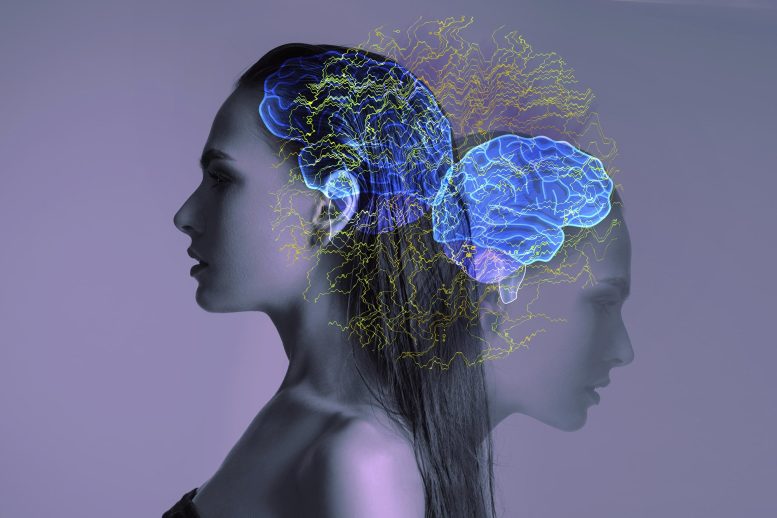Research on rare post-mortem brain tissue shows changes in gene activity, offering new insight into the biological basis of depression.
Researchers from McGill University and the Douglas Institute have discovered two distinct types of brain cells that show alterations in individuals with depression.
Their study, published in Nature Genetics, paves the way for potential treatments that directly target these cells while also advancing scientific understanding of depression, a major global health challenge affecting over 264 million people.
“This is the first time we’ve been able to identify what specific brain cell types are affected in depression by mapping gene activity together with mechanisms that regulate the DNA code,” said senior author Dr. Gustavo Turecki, a professor at McGill, clinician-scientist at the Douglas Institute and Canada Research Chair in Major Depressive Disorder and Suicide. “It gives us a much clearer picture of where disruptions are happening, and which cells are involved.”
Rare brain bank enables breakthrough
The team examined post-mortem brain tissue from the Douglas-Bell Canada Brain Bank, one of the rare global resources containing donated samples from individuals with psychiatric conditions.
Using single-cell genomic methods, they analyzed RNA and DNA from thousands of brain cells to determine which cell types functioned differently in depression and which DNA sequences might account for those changes. Their analysis included samples from 59 individuals with depression and 41 without the condition.
Key brain cells linked to depression
The results revealed altered gene activity in a certain type of excitatory neuron involved in mood and stress regulation, and in a subtype of microglia cells, which help manage inflammation. In both cell types, many genes were functioning differently in people with depression, suggesting potential disruptions in these key brain systems.
By pinpointing brain cells affected in depression, the study adds new insight into its biological basis and, more broadly, challenges lingering misconceptions about the disorder.
“This research reinforces what neuroscience has been telling us for years,” Turecki said. “Depression isn’t just emotional, it reflects real, measurable changes in the brain.”
As a next step, the researchers plan to study how these cellular changes affect brain function and whether targeting them could lead to better therapies.
Reference: “Single-nucleus chromatin accessibility profiling identifies cell types and functional variants contributing to major depression” by Anjali Chawla, Doruk Cakmakci, Laura M. Fiori, Wenmin Zang, Malosree Maitra, Jennie Yang, Dariusz Żurawek, Gabriella Frosi, Reza Rahimian, Haruka Mitsuhashi, Maria Antonietta Davoli, Ryan Denniston, Gary Gang Chen, Volodymyr Yerko, Deborah Mash, Kiran Girdhar, Schahram Akbarian, Naguib Mechawar, Matthew Suderman, Yue Li, Corina Nagy and Gustavo Turecki, 5 August 2025, Nature Genetics.
DOI: 10.1038/s41588-025-02249-4
The study was funded by Canadian Institutes of Health Research, Brain Canada Foundation, Fonds de recherche du Québec – Santé and Healthy Brains, Healthy Lives initiative at McGill University.
Never miss a breakthrough: Join the SciTechDaily newsletter.
